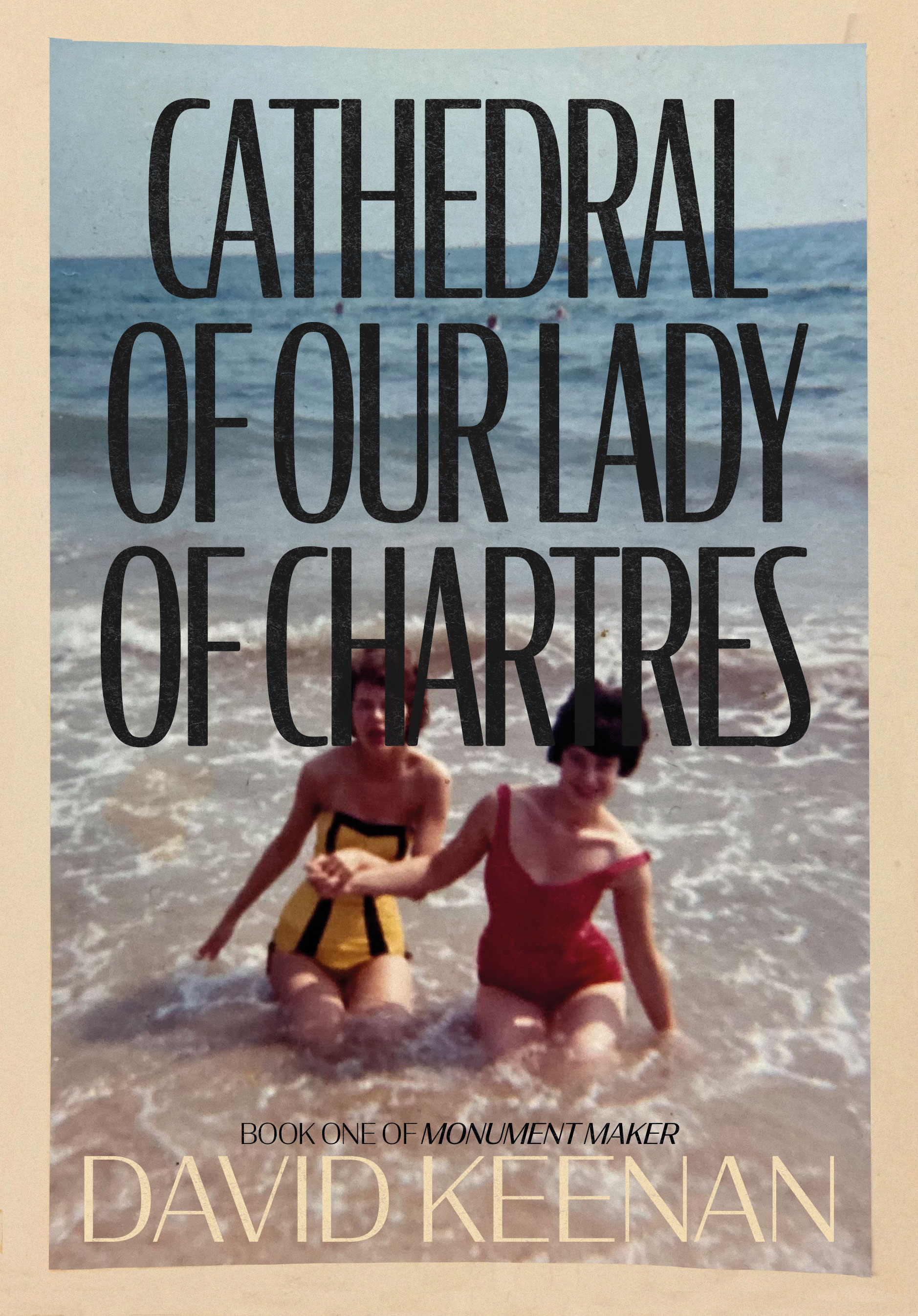The perfect performance of the music of J.S. Bach would consist of a setting of ‘Cantata BWV 172’, the cantata for the first day of Pentecost that begins ‘Ring forth, o songs, resound, you strings!/ O most blessed time!/ God Himself shall prepare our souls to be His temples’, followed by Bach’s setting of the Lutheran hymn ‘Komm, Gott Schöpfer, Heiliger Geist’ aka ‘BWV 667’ (‘Come, God Creator, Holy Ghost’), and ending with a setting of Bach’s ‘Magnificat’, in a humble stone church of little renown somewhere untraceable in central France, with average paintings of the Stations of the Cross around the walls and high above you, stained-glass portraits of Christ and his disciples, the one barely distinguishable from the other due to lack of concern for nonsense like artistry and fealty to what is otherwise right in front of you, and with two sopranos, one of which is as white as a mime, and one of which looks like a cross between Germaine Greer and Barbara Dickson, as well as a super-cute alto whose face is just a little too wide, all the same, plus a bald unremarkable tenor, inevitably, and a leonine bass straight out of amateur dramatics, under the direction of a small conductor with all of the martial kinetic intensity of a Picasso, and it should start late, and feature at least forty minutes of pointless comings and goings, with the orchestra and the choir scattered about the stone church, all of whom are dressed in black and with red accessories, like one old dear, for instance, who stands out with a grotesque face and fat over-large features and short grey hair in a bob and whose man is obviously dead and with a large red rose drooping from her buttonhole and who will stare at you like an old witch with a toad in her hand, and the audience will almost exclusively consist of friends and family of the performers themselves, who greet each other with great exclamations and outrageous kisses, and most of the audience will be older than you, hopefully, you would hope so, certainly, although there will be the odd hot daughter, taller than her mother and with long dark hair, but with training shoes on (disappointingly, this is a formal occasion for God’s sake), and the odd young couple – the girl who with effortless French style has thrown together her outfit, with effortless French style, it’s uncanny, a handbag with a thin strap worn over her shoulder, her hair tied up in a tousled bun, and no make-up, with effortless French style – and throughout the performance, just in front of you, the young girl with unfathomable French style (this is Paradise) will occasionally kiss her husband, on the shoulder, not on the cheek (this is Paradise), her silent broad-shouldered husband who will occasionally let out a giggle or whisper something in her ear in return, and across the way some huge old man with a Mediterranean tan and pale lips and who is too big for any woman that is not a giant herself and who best resembles the film-maker Kenneth Anger (didn’t he once leap to his feet and prophesy his own death in a church much the same as this at the funeral of an old friend?) and who will stagger in on a walking stick with the help of his long-suffering wife, too big for her, certainly, and who wears a single gold ring on his index finger and who will shake and gibber through much of the performance, and then leave early, probably due to some weak bladder condition, and some nut at the back who looks like a junkie or an alcoholic, killing time, who is there just to shelter from the elements, even though this is France, in the summertime, this is France in the summertime, you imbecile, get out, and just then some other old dear drops her walking stick with a klang! and everyone looks around while some helpful old soul retrieves it for her, and in front of you there is a sophisticated older woman with a big rust-coloured coat that she wears like a cloak, her sunglasses up on her head, and who slips her shoes off, her soft silver slippers, and who sits cross-legged in front of you on the bench, and who inevitably inspires fantasies of another life altogether, of liberating her from her husband, who is way below her league (= dweeb), and of running off to some vineyard at the end of the world, and as the orchestra make their way to the stage everyone is applauding everyone, this will take forever, you will think, holy fuck this will take forever at this rate, you will mutter beneath your breath, but then when the music starts it is Bach, immediately, it is Bach and it is eternal and it is like it has been playing, there, in the background, out there, in the universe, in the precise tuning of the planets, forever, even though it is lacking in all bombast and conceit – this is a French reading, thank God, not a German one (or a Belgian; though God preserve Philippe Herreweghe and his St Matthew Passion) – and the choir is a little too quiet compared to the orchestra, there is no amplification, and there he is, there he is in the back row, you must always search out the chorister that is touched, there he is and he sings as if in neither ecstasy nor agony, but as if cast in stone and set to sing forever, his mouth as empty as any gargoyle’s, as any stone leper’s in the pit, yet outside of the choir he works as an estate agent, but now, right now, he is in the employ of God, forever, yet behind you someone is talking, someone is muttering and you can’t work out who it is, because you long to turn in your seat and shut them up, and you plan your attack in painstaking detail, you will signal with a single finger raised to your lips, you think, you will say, s’il vous plaît, that is all, and you will silence them, for the good of everyone at this performance in this sad, delightful church, but then you start to feel dizzy, the leonine bass makes you feel dizzy, the music feels like the play of light, and shadows pass by the stained-glass windows, as though the church itself is sealed, as though the music is cubed and sealed and we are in some kind of temporary phantom hyperspace of God’s devising, in secret collusion with Bach of God’s devising, and for long minutes you will be caught up in your own mind, in the knots and convulsings of your own mind in fear and confusion, which has also taken off, but which will be brought back to the music by the focusing on the wonderful interplay between the sopranos, the one as pale as any mime, you will note, the other who looks uncannily, now, unconscionably, now, like a cross between Barbara Dickson and Germaine Greer, as they combine in something atomic, it seems, it feels like, inside, outside, something that appears as the shape of creation itself, as its inner workings, its outer workings, as its love play, sung, and for the first time you will think to yourself, in wonder, and it will feel like a breakthrough, a meaningful revelation, a genuine development, how many ways are there to sing Gloria, well, let’s see, and there will be a break between movements and the audience will go to clap but the stern Picasso midget madman that leads the music will silence them with a sudden hand and he will disappear into what appears to be a wall with no openings, into what appears to be cold stone, and will reappear, above, next to the organist, who sits at this incredible organ contraption with its old steel pipes and it is possible to see the organist’s face due to the strategic placement of a small mirror just to his right, a small mirror that makes him look as if he is communicating to us, in pain and confusion and wide-lipped horror, as if from the inside of an iron lung or a glass cage, which is exactly the sound that the person behind you is making, the person who was talking is now wheezing like an old bronchial lung and muttering under her breath – it’s a woman, you turn round to make sure – and she seems as if dressed for the choir, a chorister is disrupting her own performance, you think, in wonder, and at first it is terrible and then it is magnificent, as the weird atonal drones of the organ bring your attention back around, and it sounds like it is coming out of the future, no longer out of the past, as though Bach’s vision was memorial, in time, forever, not just looking back, not just for his time, but forward, and forever, amen, you mutter, beneath your own breath, amen, and sure enough, when the organ solo ends and the conductor returns the woman behind you rises to approach the stage and join the newly massed choir at the back of the stage and she is touched, too, all true choristers are touched, as she is led to the stage, with the help of an elderly chorister herself, she has trouble walking, and continues to mutter and shake, and you feel bad, you feel terrible and wretched and less than life, for a second you doubted, for a second your faith gave way and you thought that there was something wrong, something that it was in your power to correct, and you curse yourself, but you forgive yourself just as quickly, because you know, in an instant, it is communicated to you, you know, with certainty, that God did it for the poetry of it, that God is playing with you just how you like to play, sly God, loving creator, Magnificat, Magnificat, you say, and you shake your head as the choir rises in a single voice and moves like a small body of water in the harbour of a system and the muttering chorister is held up by her friend and is she even singing, is she muttering beneath the choir, yes she is, she is muttering and lamenting, there is a score within the score, you think, you believe you have uncovered it, this secret score, embedded, you believe you have glimpsed it, in that, there, for a second, now, you think, and then you think, who writes music these days with titles like ‘Magnificat’, don’t they all write songs with titles like ‘The World is a Problem’ or ‘I Hate It’ or ‘If Only, Then’: but didn’t Bach do that, too, you think, didn’t he lament that this whole world is a hospital, but even then he said he would praise God all the harder as soon as he was discharged, songs of praise, you think, we are in need of songs of praise, and for a second you imagine a whole school, a new college, a bold university, that would teach yes and say yes and point out all the yes to be had, and now everyone is on their feet and applauding, and there is a pause, and then again they launch back into Magnificat Magnificat and you really need to pee so you burst out into the sun as soon as the music is over and you cycle as hard as you can to get to the canal and you pee beneath a bridge in a great satisfying arc, all the while keeping the eye out for snakes, you never know with snakes, and you get back to where you are staying and you light a humble fire on the banks of the river and you are joined by the drunken Finnish poet who is no longer annoying but who is revealed to be quite lovely, really, and the boring Swedish painter who looks like Robert Creeley, but who now appears bashful and deep, and his newly arrived girlfriend, who is cute in the light of the fire and whose hair is wild in the still night, and who is interested, and who asks penetrating questions, and who sits in earnest silence and waits for your reply, and the newly arrived Finnish doodler, the Finnish cartoonist in his awful shorts and his naff sailor’s cap, stokes the fire, he is arrived to stoke the fire, which smells so good, and your Flower holds them all in fascinating conversation and in drunken joy you fall into bed afterwards and you have that feeling, that feeling of surety, that feeling that you are sorry and that you will never doubt again. That, my friends, would be the perfect setting of the music of J.S. Bach, in this castle of heaven.
David Keenan
Preorder Monument Maker now, here!


